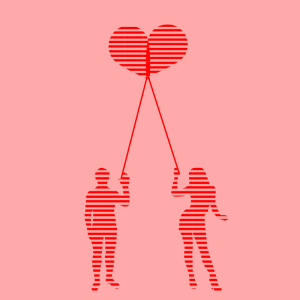Learning Your Way to A Better Love Life

We are all taught how to learn from a very early age. Educational achievement is strongly emphasized and valued in this culture and many other cultures around the world. This emphasis on education has created an ability to learn and apply what was learned in our everyday lives.
The one learning topic that is overlooked is how to most effectively relate in love. This is the part of the falling in love experience we can all learn to do better. We all need to learn how to relate in love in the best possible ways to ensure the health and endurance of the love we feel.
The emotion of love itself is an emergent experience that hits you without you being able to predict or control it. In other words, love comes and goes on its own. The only thing you can do is take care of love when it arrives by building the most effective relationship to contain the love you feel.
Sometimes love arrives when people are not prepared for it for whatever reason(s). This is a tragic circumstance in a person’s love life and most of us can recall the experience of falling in love without being able to tolerate the emotion or without adequate understanding to create and sustain the required relationship for the love we were feeling.
In most instances of inadequate preparation or limited learning love ends up diminished or lost. So what you’ve learned about love and the relationship required to sustain love will not bring the experience of love into your life. We just don’t have that kind of control. What you have learned will do is help you keep love alive and healthy if and when it arrives.
The relationship you co-create with another human being you are in love with to contain your love will determine its longevity and overall health. There are certain things that are required to keep love healthy. These requirements can be learned and practiced. Most people learn how to relate in love in their family of origin. What is learned there can be helpful or not.
If what you learned in your family is not helpful, you can unlearn what was not useful or detrimental to love and relearn or learn for the first time something more effective in preserving the experience of being in love. For example a few important requirements needed to sustain a healthy love relationship are: learning how to take good care of yourself while in love; learning how to give and receive in love; learning how to communicate in love; learning how to be independent in love, and; learning how to be yourself in love.
These requirements can all be learned and practiced. The end result is a deeper and more intimate relationship that nurtures the love you are in with another person. Because of that early emphasis on learning I mentioned earlier, we are all prepared to apply our ability to learn to whatever topic we choose. Imagine if we chose to learn how to best relate in love? Imagine if we made learning how to relate in love a priority for every person to learn and practice in his or her lifetime?
Would there be more successful marriages as a consequence of this more organized and official interest in love? Would there be less love life hurts and pain? Or would the family of origin compete for the exclusive ‘rights’ to continue teaching about love in the indirect ways it has always done so? My guess is that families would feel threatened and fight to retain the exclusive privilege to teach about love to their offspring by resisting any other means of teaching this topic.
Whether the family of origin can meet the need for a more organized and deliberate love life education is doubtful. Until we can live in a society that ensures what we’ve learned about love will promote love in our lives, learning how to constructively be in love must be taught on a grassroots level to individuals who see the value of this kind of education for their personal love lives.
Comments? Welcome. Dr. Tom Jordan
